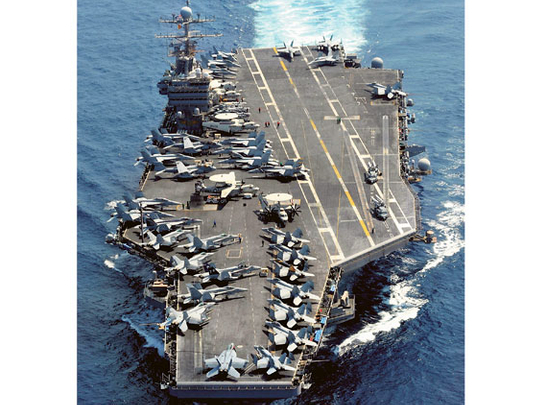
For more than two decades, possibly since Saddam Hussain's decision to invade Kuwait in late 1990, Iran has in its own way been moving from one strategic gain to another. The Iraqi invasion of Kuwait and the resulting Gulf war fundamentally weakened and isolated Iraq, and removed the most important regional challenge to Iranian ambitions. This was secured without any cost to Iran.
Osama Bin Laden's 9/11 attack on the US added huge credit to Iran's strategic gains, and most Arab countries and specifically Saudi Arabia, Iran's other main regional competitor, came under huge political and moral pressure from the US. It took many years to restore normal relations with the US and its western allies.
During this process, Saudi Arabia's regional and international standing was considerably weakened. At the same time, and as a direct result of the 9/11 attacks, the US invaded Afghanistan, occupying the country and removing the Taliban regime, the natural opponent of the Iranian regime.
These ‘costless strategic gains' for Iran were cumulated by the unwarranted US decision to invade Iraq in 2003 which resulted in the removal of the Baath regime and the installation of a pro-Iranian regime in Iraq.
To all these gains have to be added Hezbollah's prominence in Lebanon and Hamas moving closer to Iran. Thus, one can describe the past decade as ‘Iran's golden decade' which came about mainly by misguided US policy.
During the past few years, Iran has enjoyed the strategic fruits of US miscalculations and its inability to translate swift military victories into political or strategic gains. Meanwhile, the past decade has witnessed the fast development of the Iranian nuclear programme. The measures adopted by the international community to restrain the development of the programme have had limited impact on the determined Iranian leadership.
Today, the party is over. Coupled with a rational policy adopted by the administration of US President Barack Obama, the Arab Spring has produced a new environment in the region.
On a strategic level, Iran is on the verge of disaster, which is reflected in the possibility of losing its main ally in the region, the Syrian regime. The strategic triangle of Iran, Syria, and Hezbollah has strongly influenced regional politics in the past few decades, and the Syrian regime was the ‘Crown Jewel' of this alliance.
Today, as the Syrian regime, confronting a relentless popular uprising, is on its way to final collapse, Iran stands helpless to save its main strategic ally in the region. In general, Iran, along with Israel, is emerging as one of the biggest losers of the Arab Spring. Political Islam is gaining control over many governments in the Arab world, in a recognised legitimate manner. Iranian political rhetoric no longer finds sympathy on the Arab street.
On the other front, the Obama administration is moving slowly but determinedly to corner Iran on the issue of the state's illegitimate nuclear ambitions, waging intelligence, diplomatic, and economic war — unilaterally or collectively — to disable Iran's capability to continue with its clandestine nuclear programme. The military option is on the table as a last resort, with the US neither confirming nor denying its value, leaving Tehran guessing and panicking.
As a direct reaction to the accumulating and skilfully coordinated international pressure on Iran, which is masterminded by the Obama administration, and as a reaction to the new unfavourable environment generated by the events of the Arab Spring, the Iranian leadership has started to behave irrationally. The ayatollahs of Iran are feeling the heat, and have no, or very little, protection to shield them.
As a sign of the genuine and dangerous state of panic and anxiety which seems to be dominating the Iranian decision-making circles, during the past few weeks the Iranian leadership issued a number of threats.
The most intimidating threat was Iran's declaration of its intention to close the Strait of Hormuz and prevent the export of energy (oil and gas) from the Gulf region to the international market. Interfering with the freedom of navigation in internationally recognised waterways like the Strait of Hormuz is not a threat against the Gulf states alone, but is a threat to international peace and stability.
The international community has the responsibility to deal effectively with the Iranian threat to the freedom of navigation in international waters, which represents a new form of ‘state sponsored piracy'.
Similarly, there was another Iranian threat to "punish" any Gulf country that steps in to replace the boycotted Iranian oil and supply the international oil market. It is the prime responsibility of the international community to protect and maintain the freedom of trade.
The non-military measures adopted so far by the international community serves the Gulf states' national interest in avoiding the far more costly and undesired, military option. Therefore, political logic says that the more the threats coming from Iran towards the Gulf states, the more determined these states will be to pursue and implement the requirements of the non-military option.
Dr Mustafa Alani is the director of Security and Defence Studies Department at the Geneva-based Gulf Research Centre.











